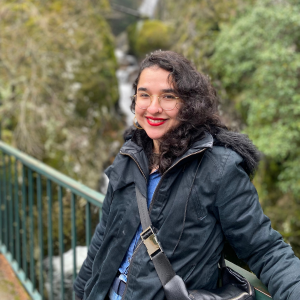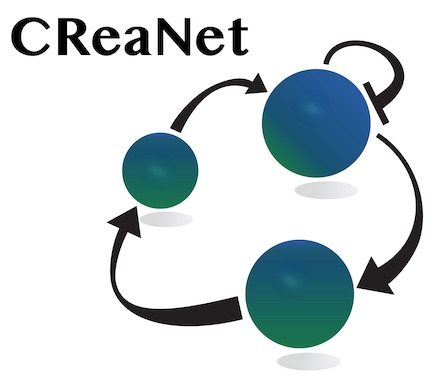
1. Please tell us a little about yourself. Where are you from and what is your research background?
I am from Brazil. I was born in Belem, located in the Amazon Forest. My bachelor’s degrees in Chemistry and Industrial Chemistry were obtained at the University of Brasilia, Brazil, and my master’s degree in Advanced Spectroscopy in Chemistry was obtained as an Erasmus Joint master’s degree at the University of Lille, France, and Jagiellonian University, Poland. As an undergraduate student, I participated in several research groups comprising interdisciplinary activities on biofuels, polymerization modeling, metal–organic framework synthesis, geochemistry, and surface chemistry, including synthesis and characterization of nanoparticles. I am interested about nanoscience, in particular surface chemistry of nanocrystals. Therefore, on my master thesis, I worked on a project about the functionalization of metal nanoparticles for ex-vivo detection of inflammatory state in mouse tissues. Moreover, I also participated in a project where we developed nanopore sensing using gel media to slow protein translocations. Now, in my Ph.D. project at IBM Research Laboratory in Zurich, I have been working with the application of surface chemistry and lithography for the fabrication of nanoscale systems.
2. Tell us briefly about the research project you have been doing as a Marie Curie Fellow?
The goal of our research is to achieve spatiotemporal control over chemical reaction networks (CRN). The project is based on the development of biocompatible nanoscale surface-chemical patterns to control the local distribution and concentration of CRN components (molecules or nanoparticles). For that, we are using nanolocalized deposited purple membranes, which act as photoactive proton pumps to provide fuel for a CRN in the form of a local proton gradient. The nanoscale surface patterns are being fabricated by thermal scanning probe lithography. The CRN used in our project drives a hydrogel molecular self-assembly.
3. Why did you choose to apply for this particular project?
Marie Curie fellowships (MCF) are one of the best fellowships worldwide. I choose to apply to this project because it has a very good network between industry and academia. I am looking to change the focus of my career toward a direction that includes the industry reality within academic research. In addition, this project represents a new field to be explored, and its development represents a challenge to me. Furthermore, I am very interested in performing nanofabrication techniques, and this project fits well with my goals.
4. As a researcher, which goals and ambitions do you have for your future career?
As a researcher, I would like to keep developing research/applications of nanostructures and related nanodevices at research institutes, companies, or universities. My aim is to develop new structures and devices with industrial interest whose results could improve, for example, image techniques and help develop new energy resources. In summary, I would like to work with research that can improve the quality of life of human beings.
5. Who is your favorite scientist?
Nikola Tesla was my first favorite scientist. His life was very difficult, but he had a love for science despite the many drawbacks at his personal life. After I learned more about scientists within the chemistry field, I became a fan of Marie Curie because she is an inspiration for any female scientist. She was a revolutionary in many ways in her personal and scientific life. Therefore, I have these two researchers as my favorite scientists.
6. What was your first impression when you arrived in your host country?
My first time in Switzerland was during my undergraduate exchange in France. I visited Switzerland and simply fell in love with this country. It is very different from Brazil in size and organization aspects, but it has incredible natural beauty, like Brazil. During my master’s, I took a summer internship in Switzerland and had the opportunity to know more about the swiss system of research, which increased my interest in studying there. When I arrived for my Ph.D., I realized that this country has one of the best research infrastructures worldwide, and several research centers focus on innovation. Moreover, researchers have the autonomy to learn new skills and develop their own research.
7. Why is your project important for society?
The aim of our project is to develop strategies to synthesize materials with unique material properties by mimicking nature. In biologic systems, the aggregation and folding of proteins and the dynamic self-assembly of molecules can be influenced by energy sources. This energy source can be a chemical fuel, such as protons. In this project, we work on strategies to spatiotemporally control proton gradients in the nanoscale to design new materials. They can be decisive to improve the performance of new technologies as novel lab-on-chip devices for diagnostics or to fabricate the next generation of nanoscale electronic devices.
8. Marie Curie fellowship requires a lot of travels, why mobility is important for research?
Mobility is important for research because it provides the opportunity for collaboration between researchers, thereby resulting in the development of high-quality scientific work. Furthermore, a researcher’s scientific production and personal development can be greatly improved by the relationship and collaboration with scientific groups of different cultures.
9. How did you find your passion for chemistry?
Since my childhood, I was very curious about natural phenomena that influenced me, and during high school, I realized I was addicted to studying chemistry. Afterward, since my bachelor’s, I have been participating in research groups developing interdisciplinary research that provided me with a better understanding of this area of expertise.
10. Do you have any advice for other young researchers who are considering applying for a Marie Curie fellowship?
If you would like to pursue a Ph.D., the MCF is one of the best choices for that. You will have very good access to a network with different university(ies) and industry(ies) since the beginning of your journey. The MCF network supports you with your visa application and with your adaptation to the new country and culture. Moreover, you will have access to workshops, technical skills, and workshops directly related to your PhD project. The MCF network alsoprovides workshops related to entrepreneurship, communication skills, and writing skills, thus contributing even more to your professional development.
